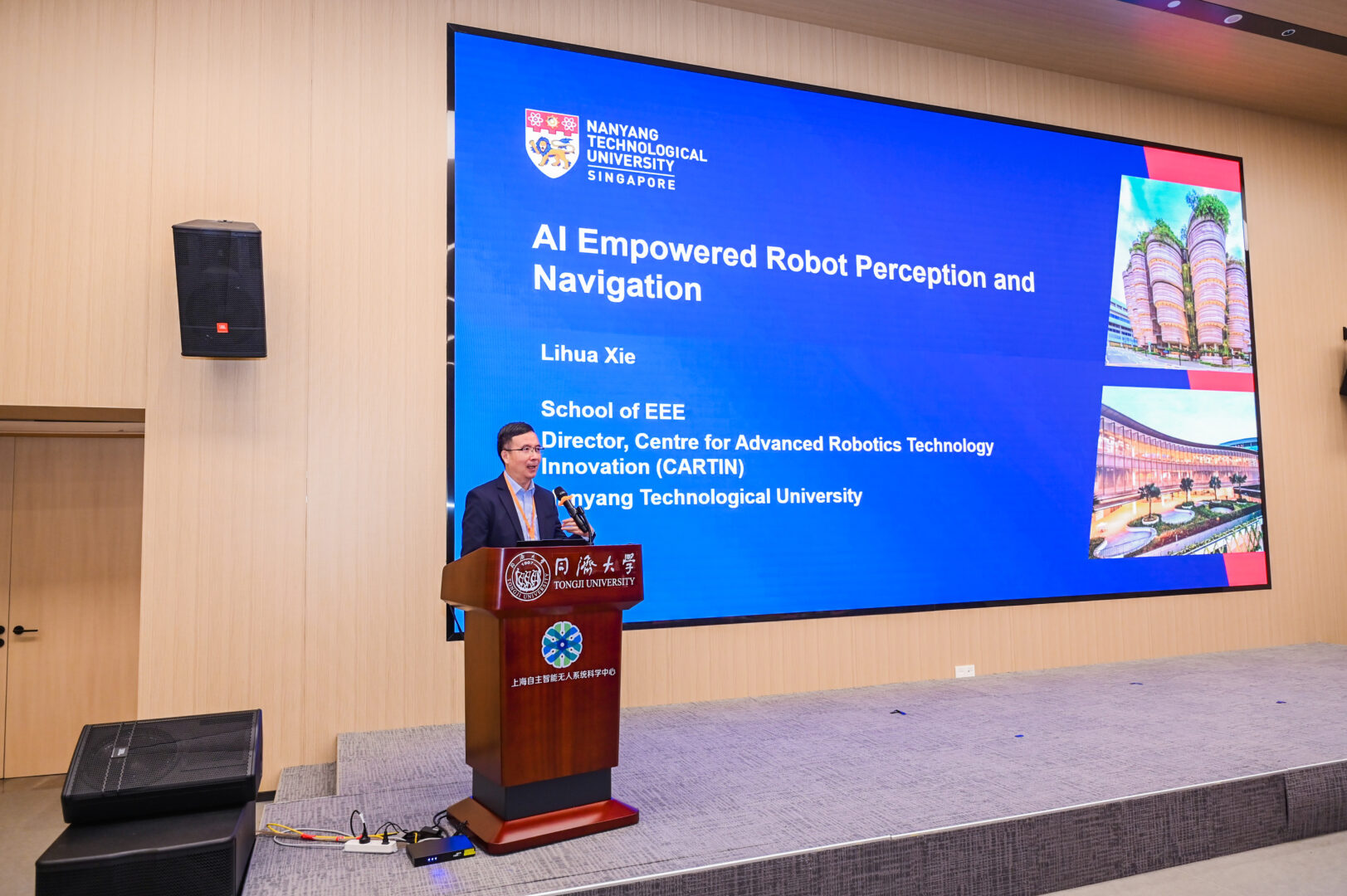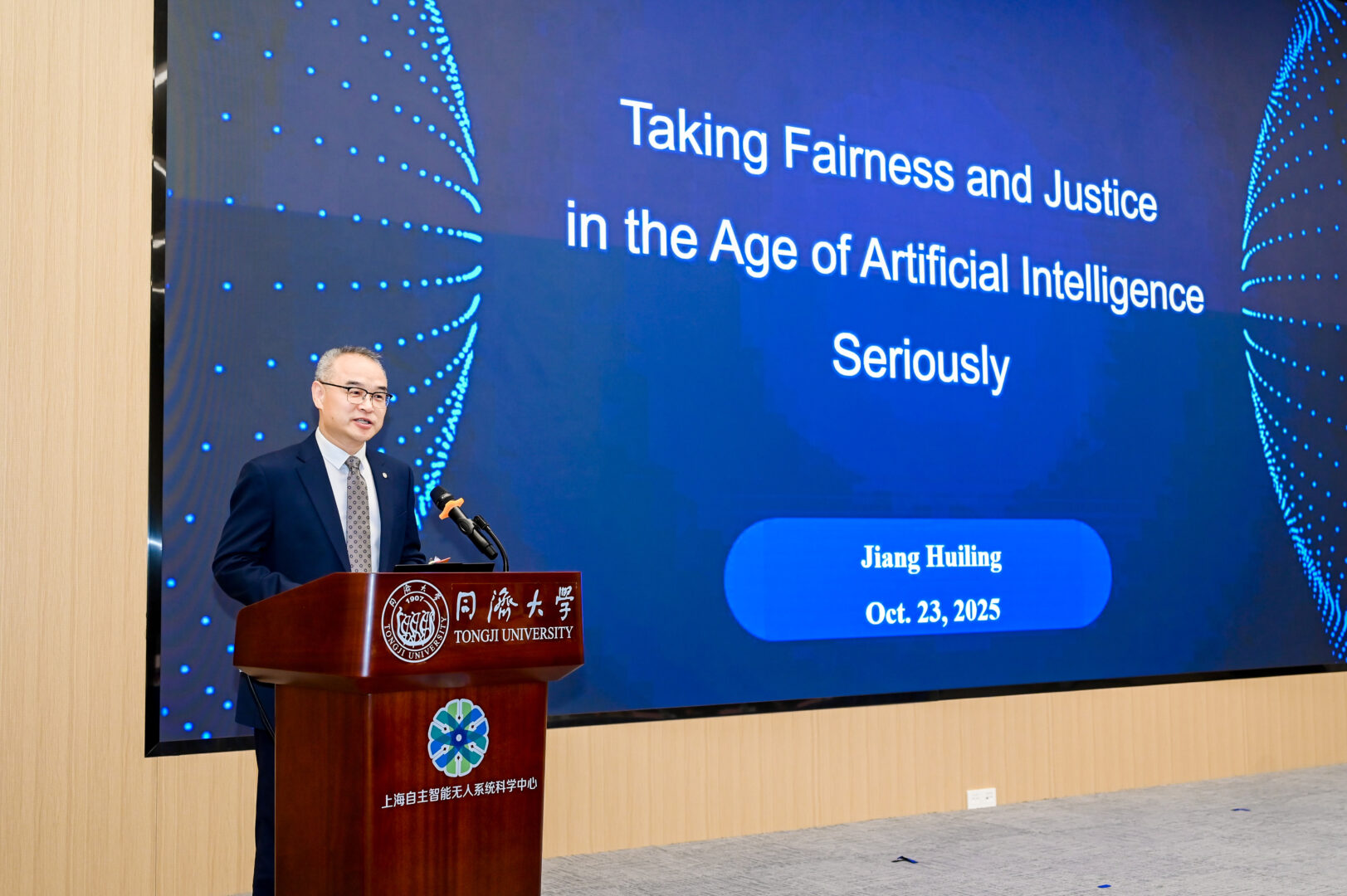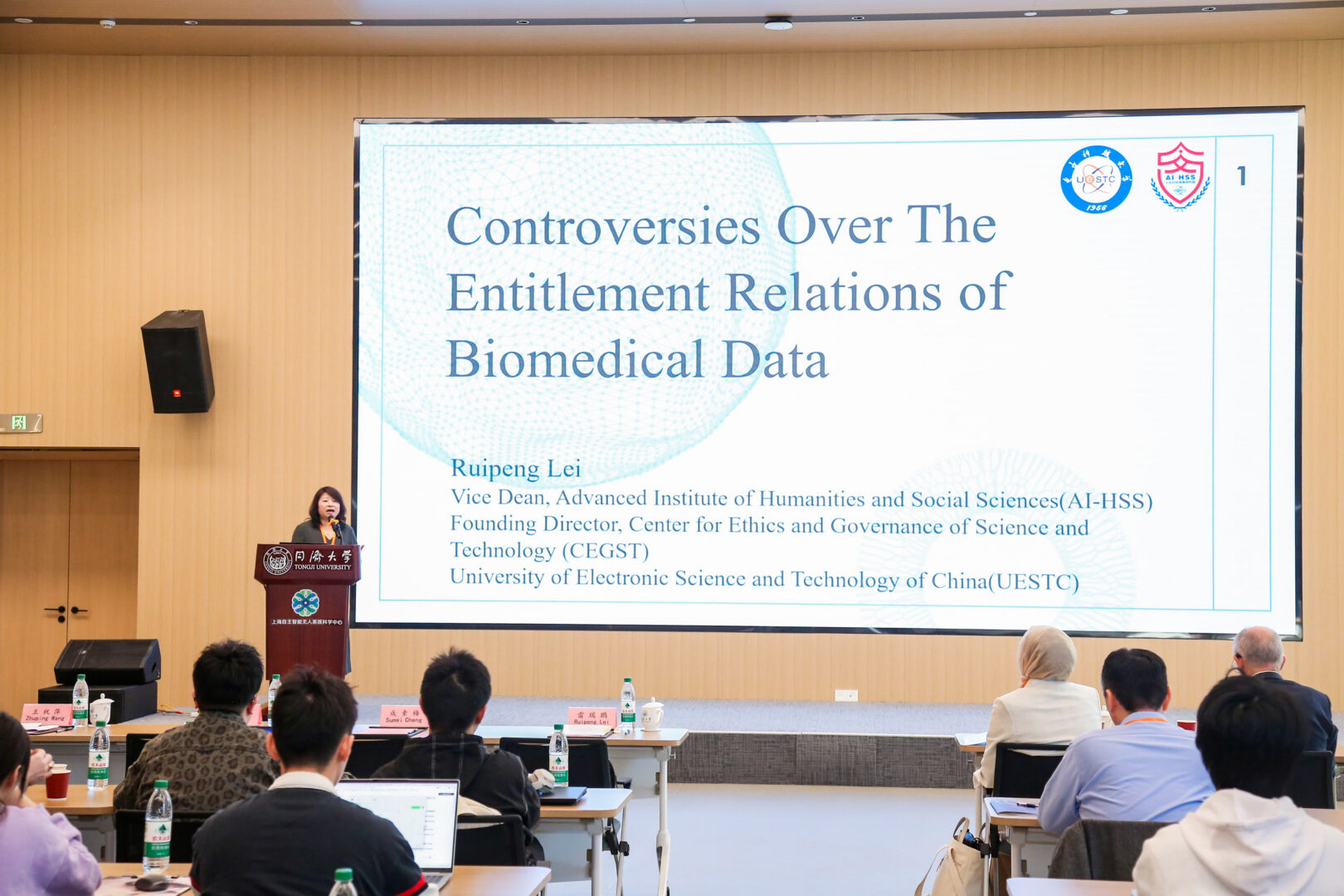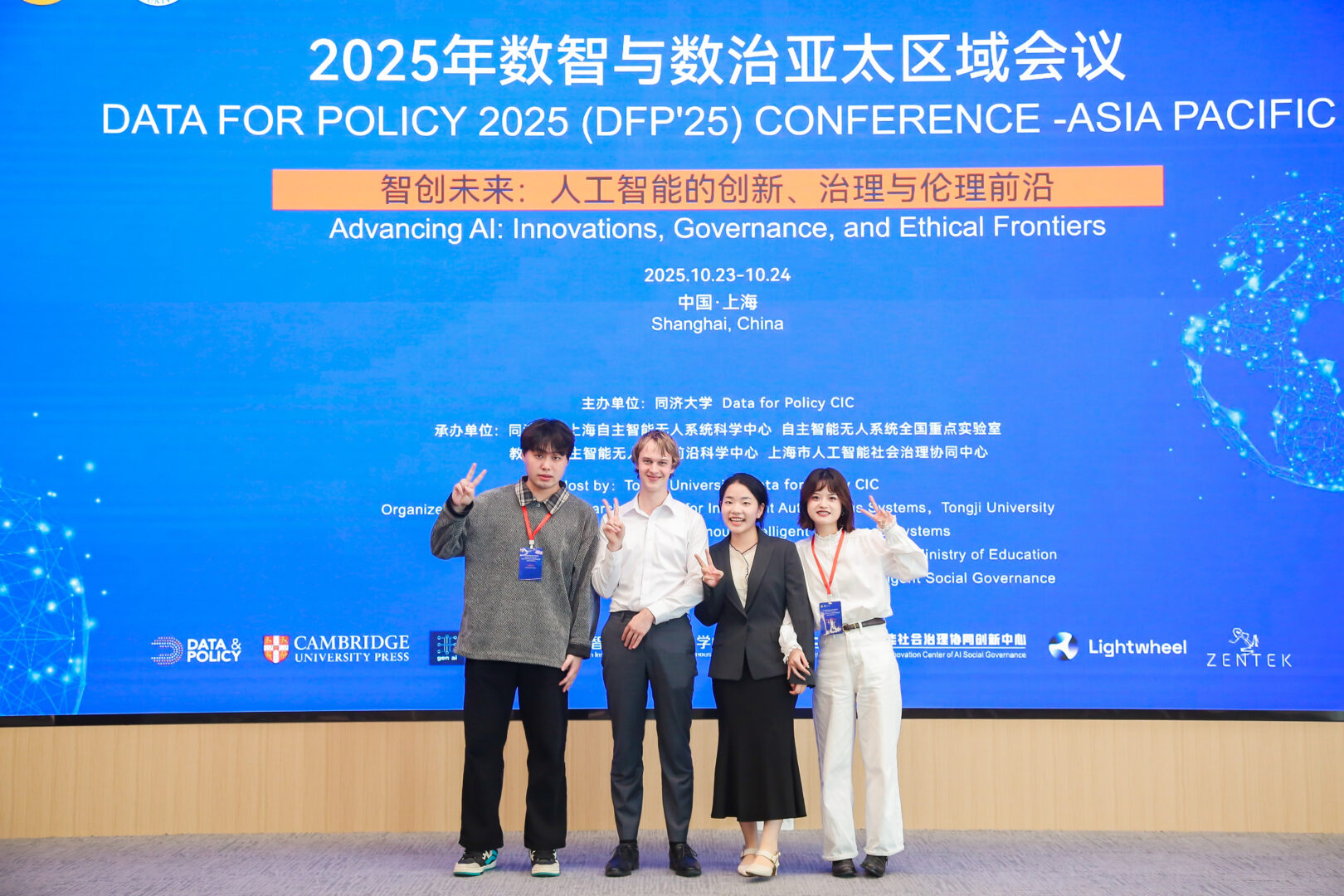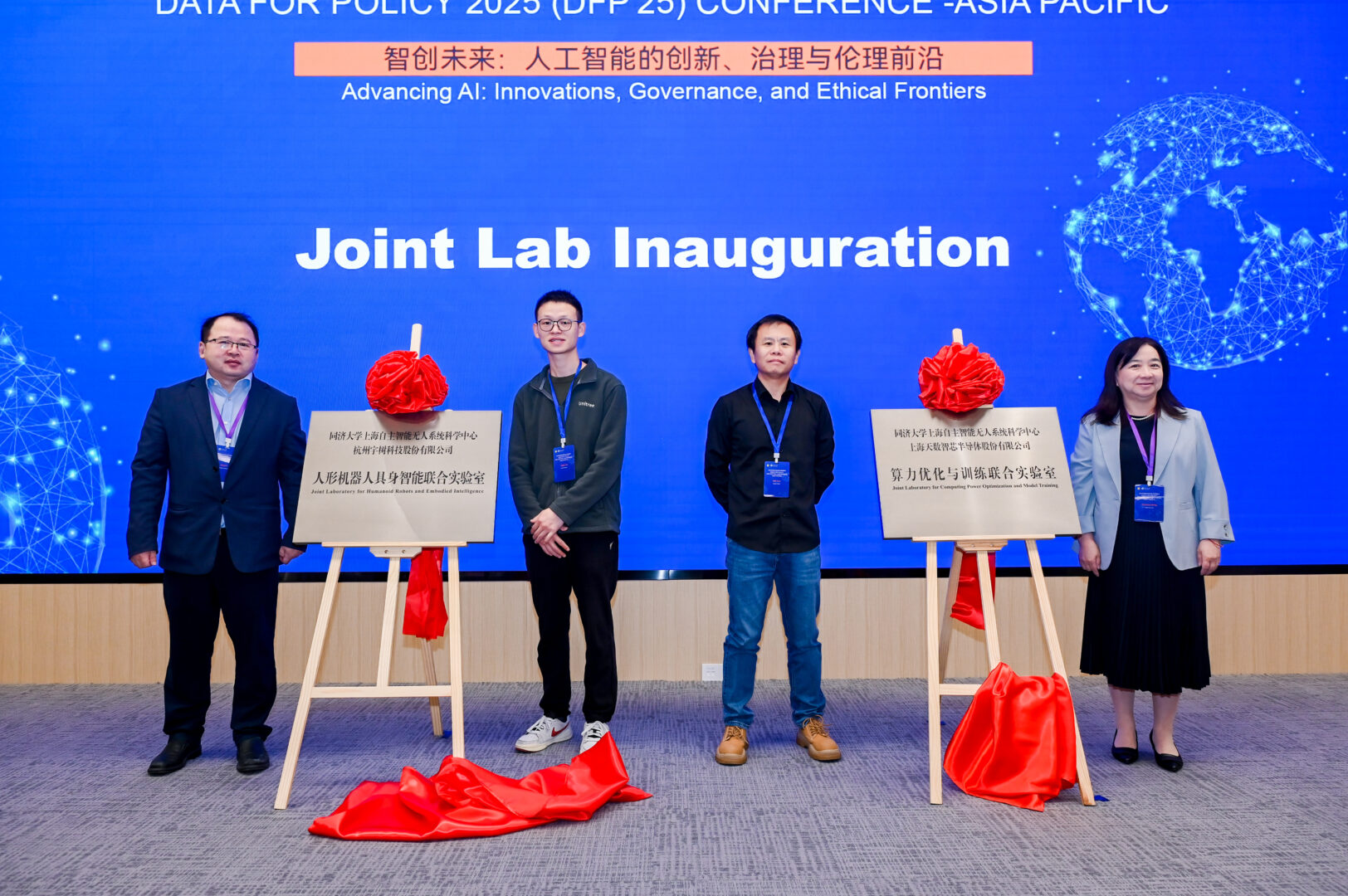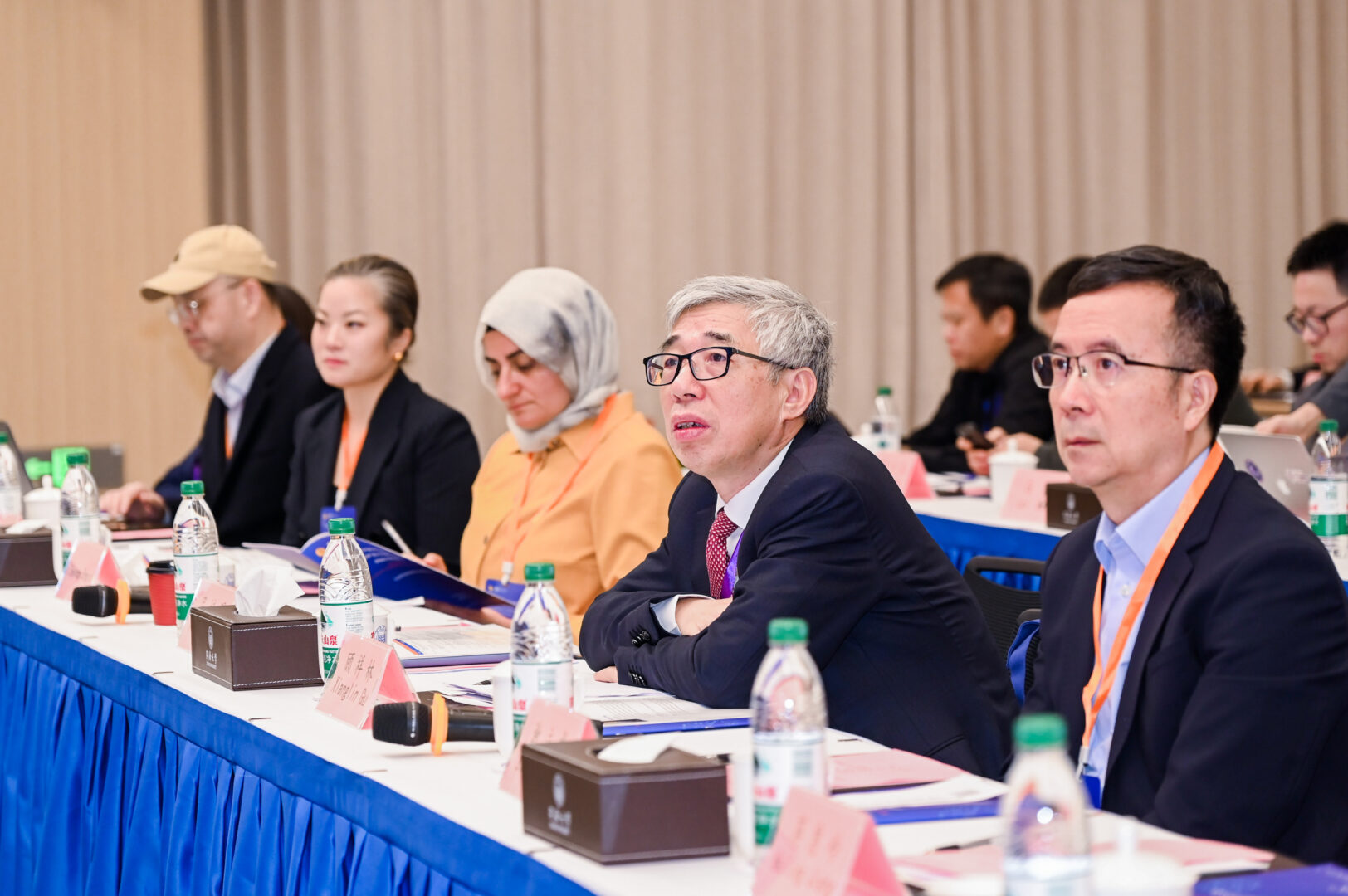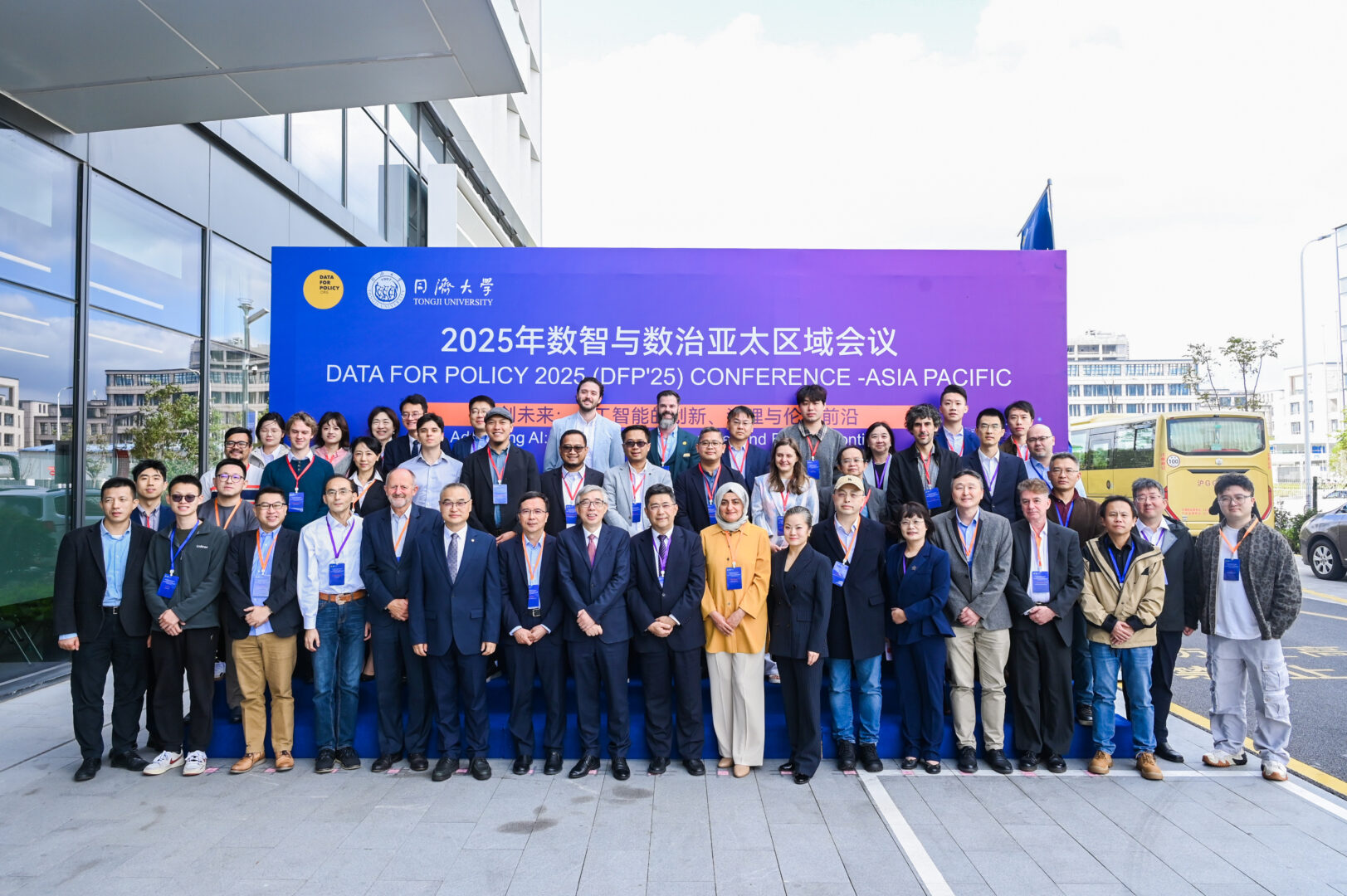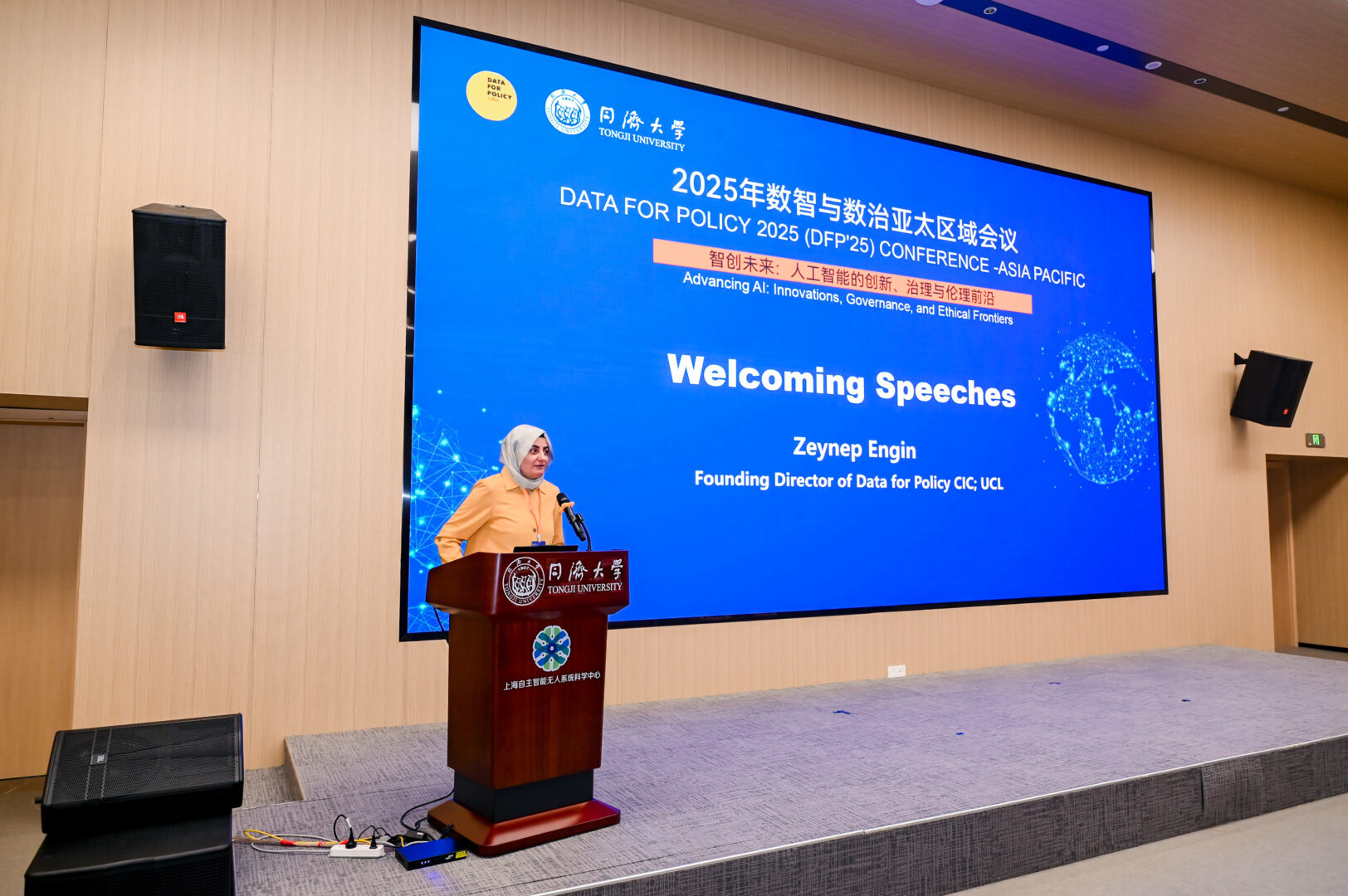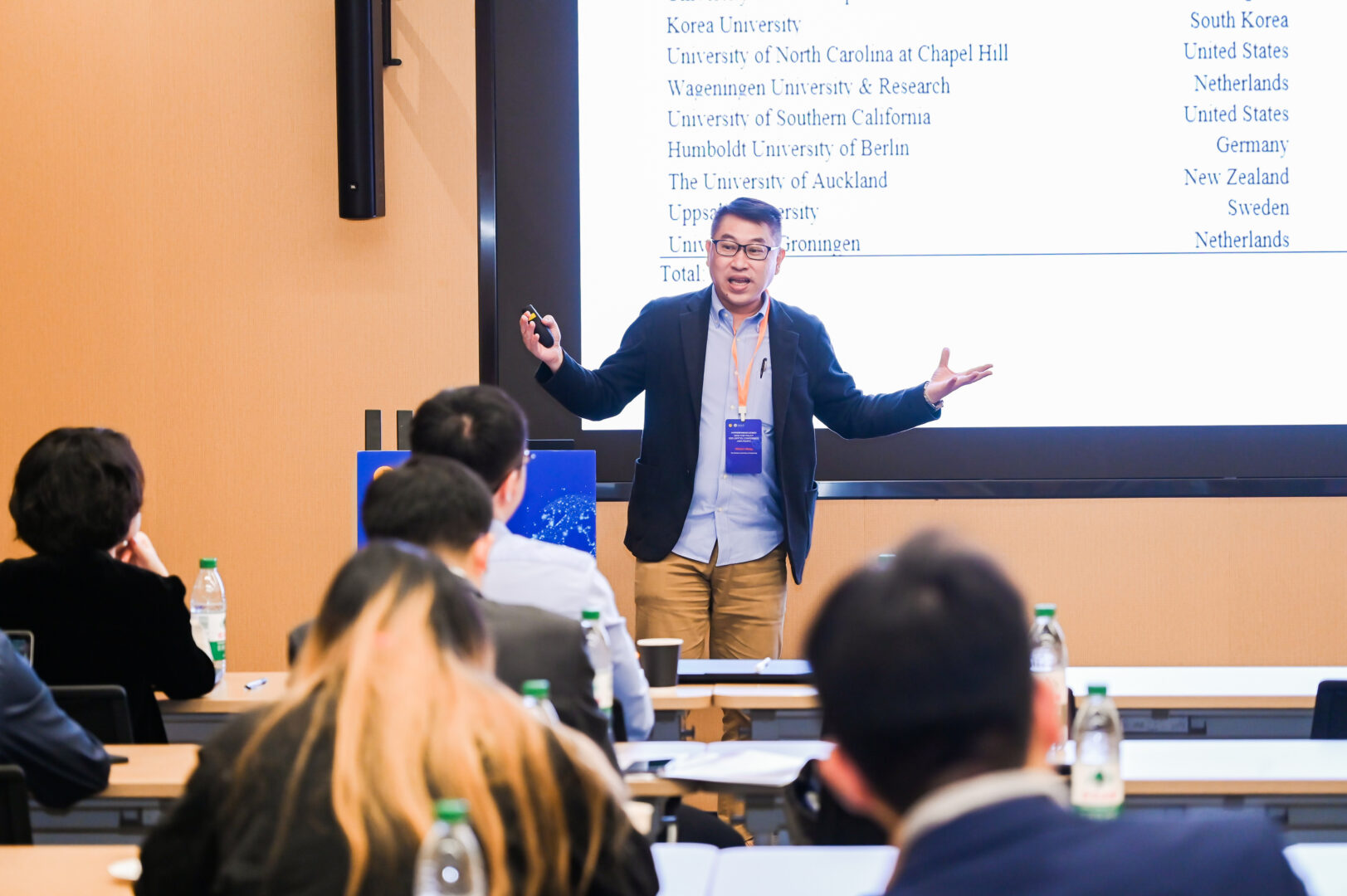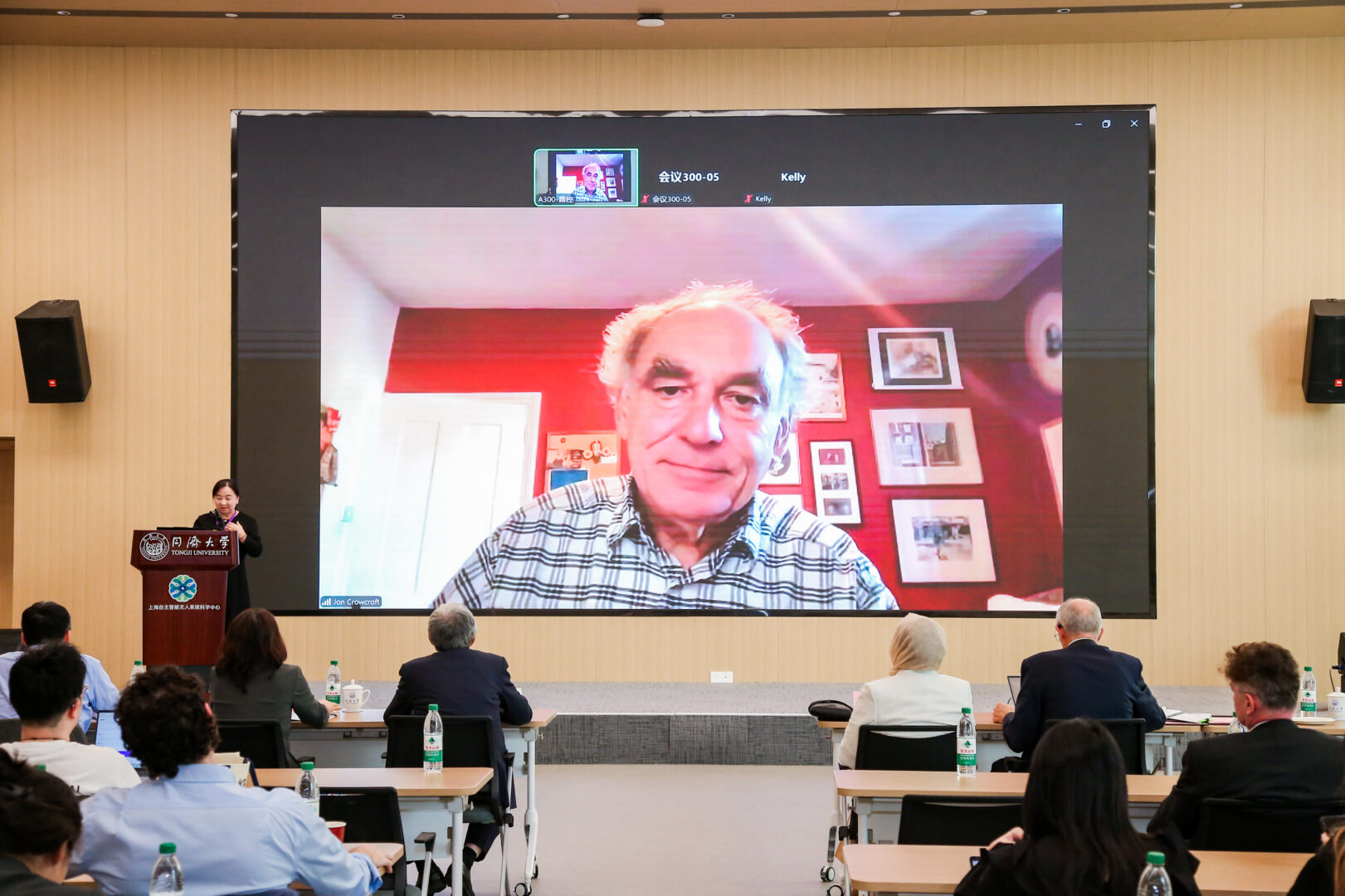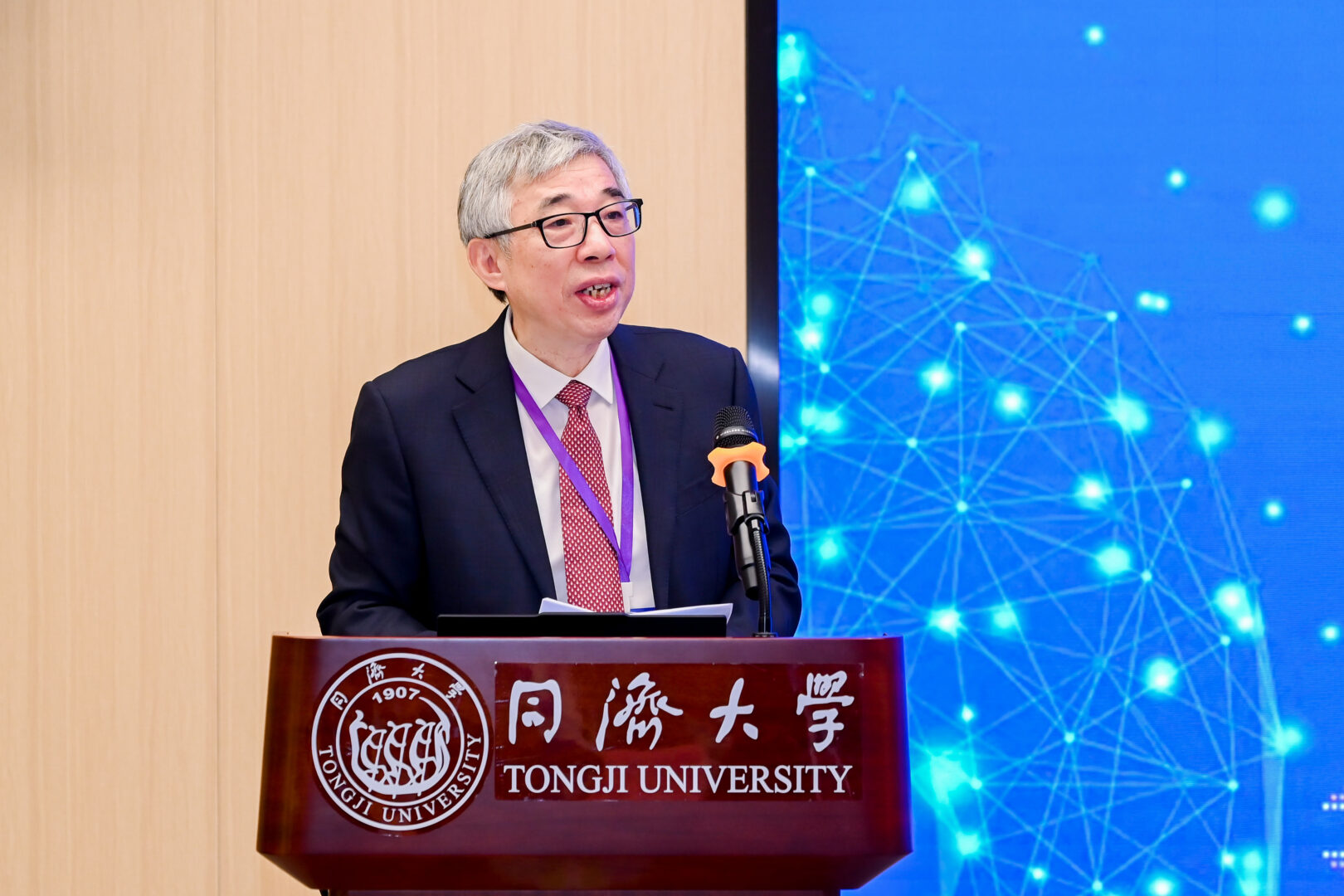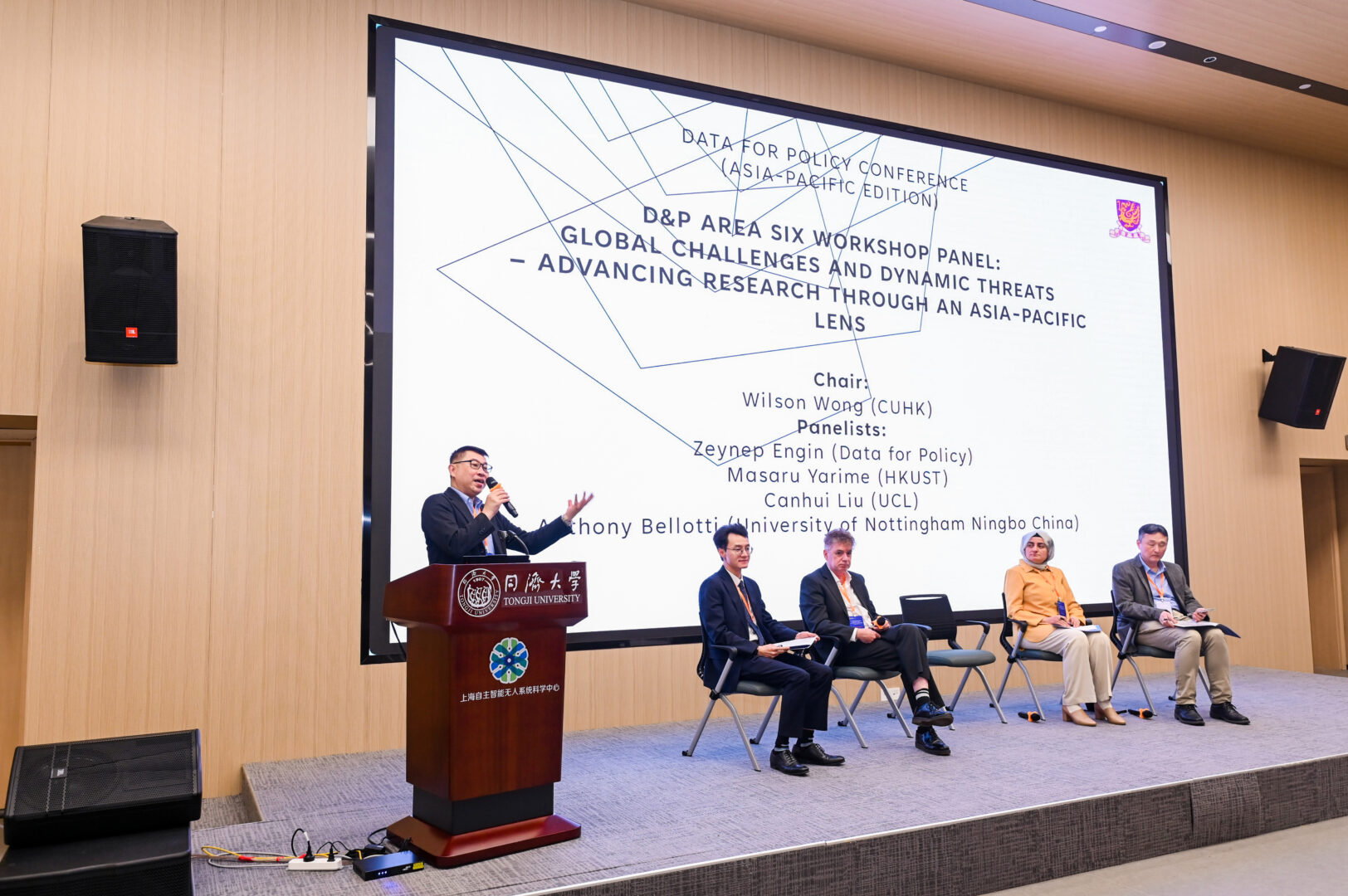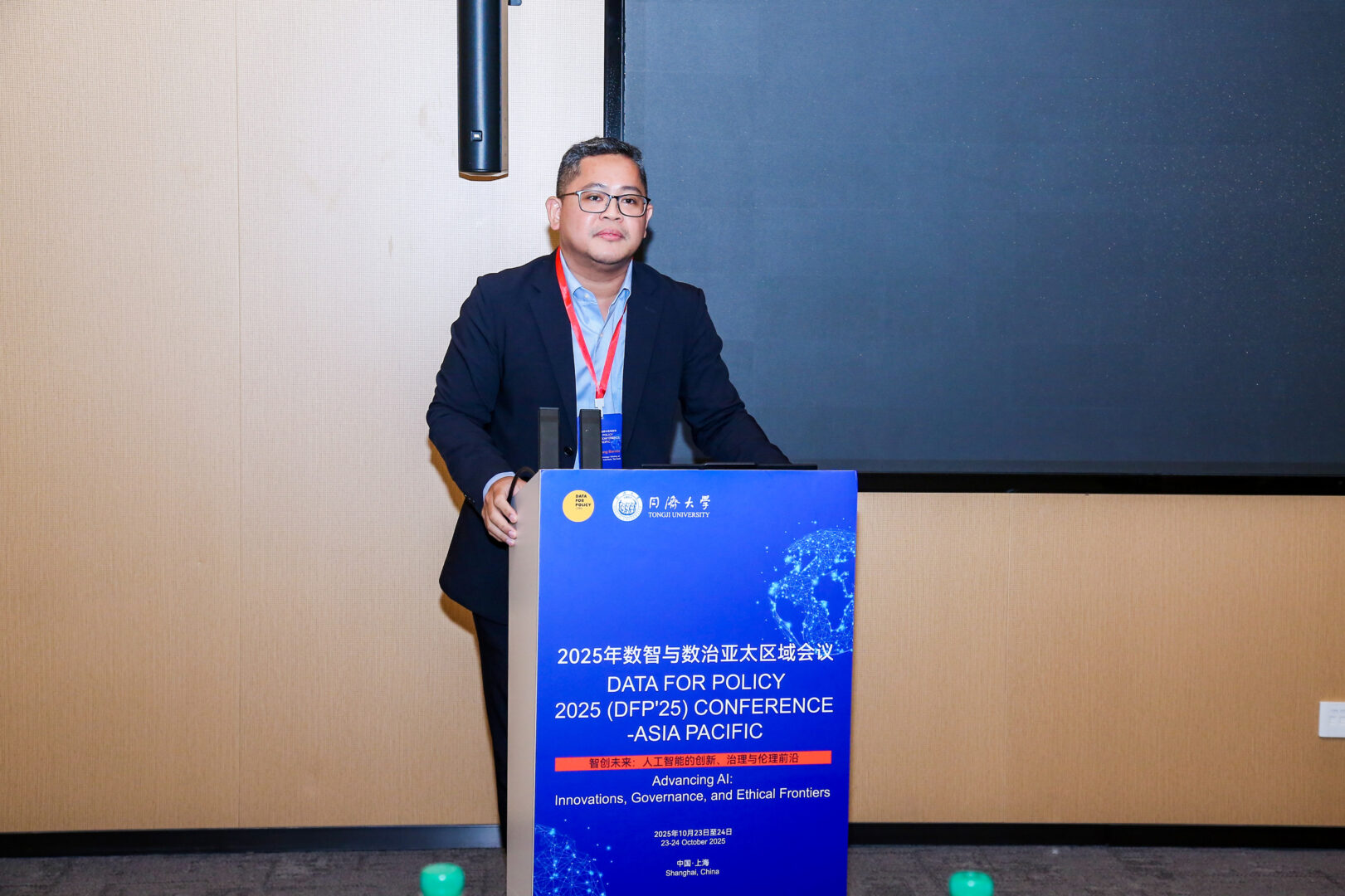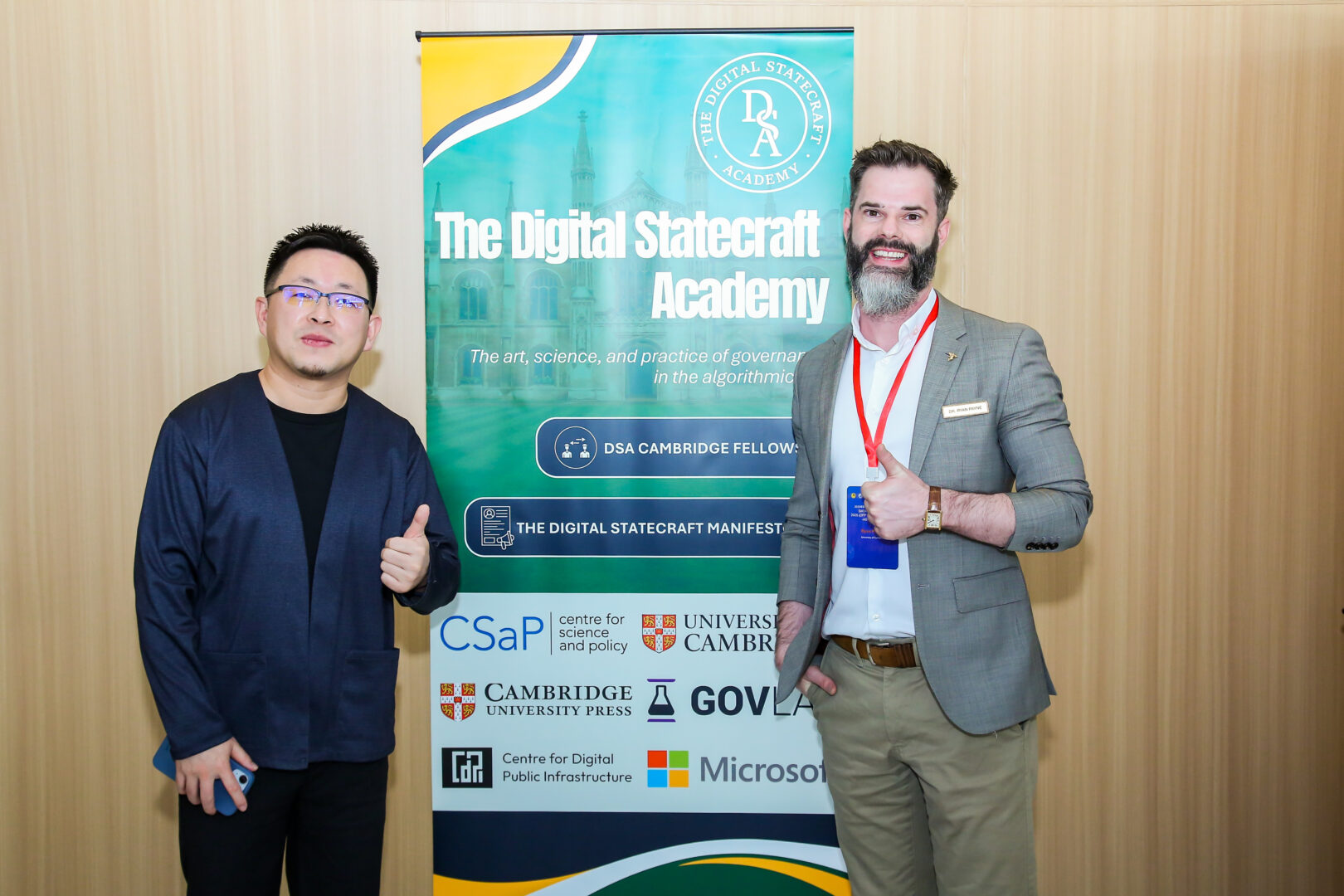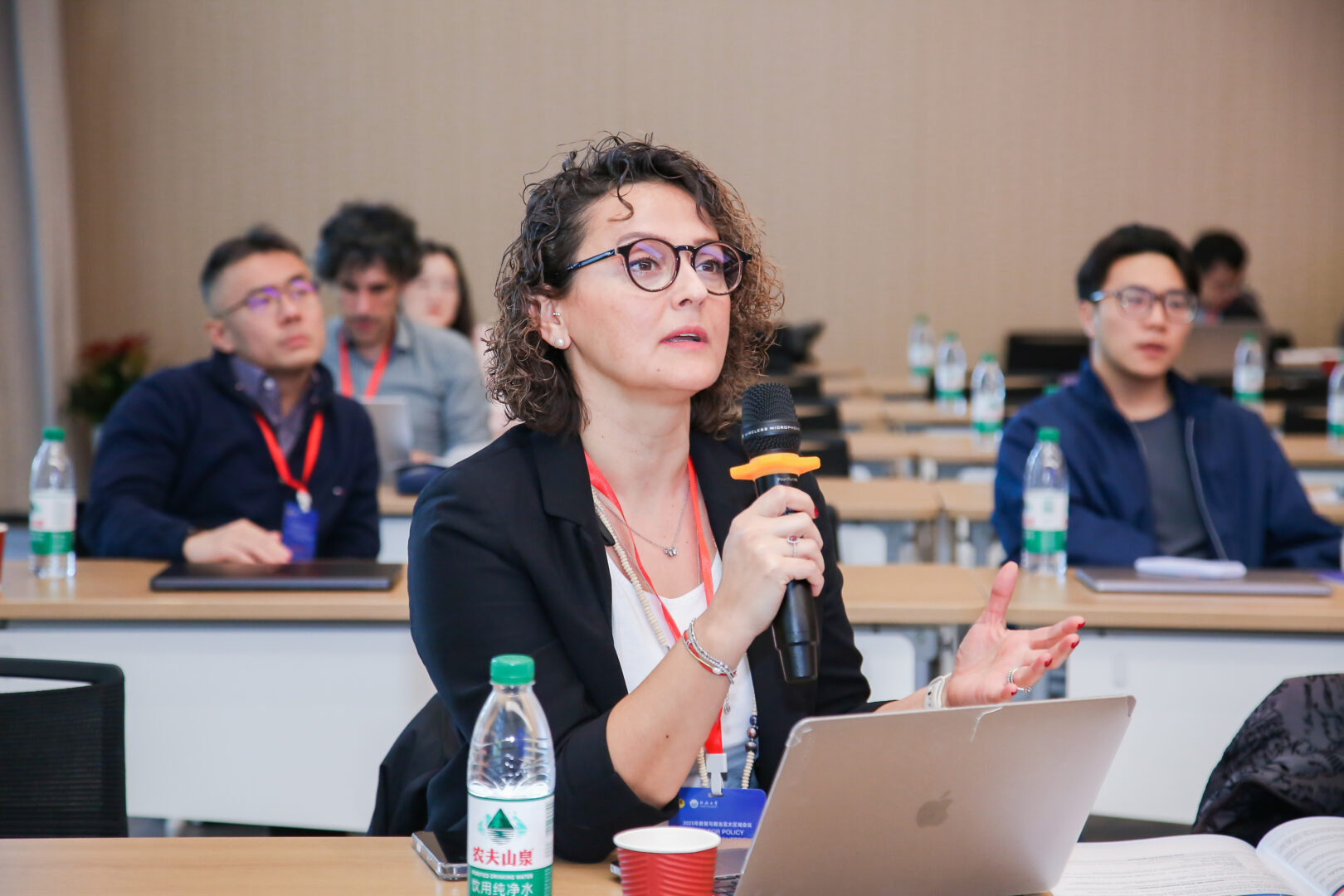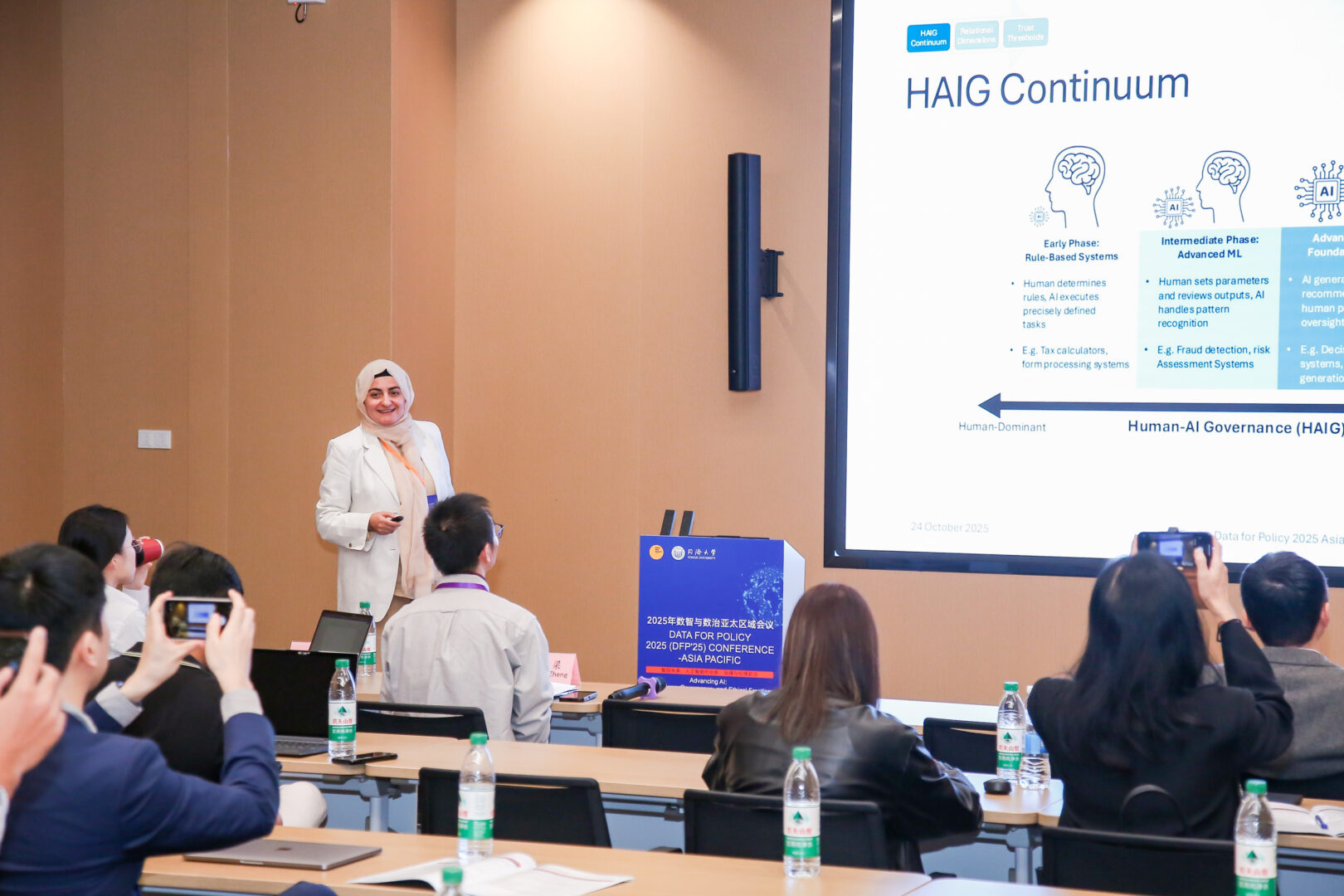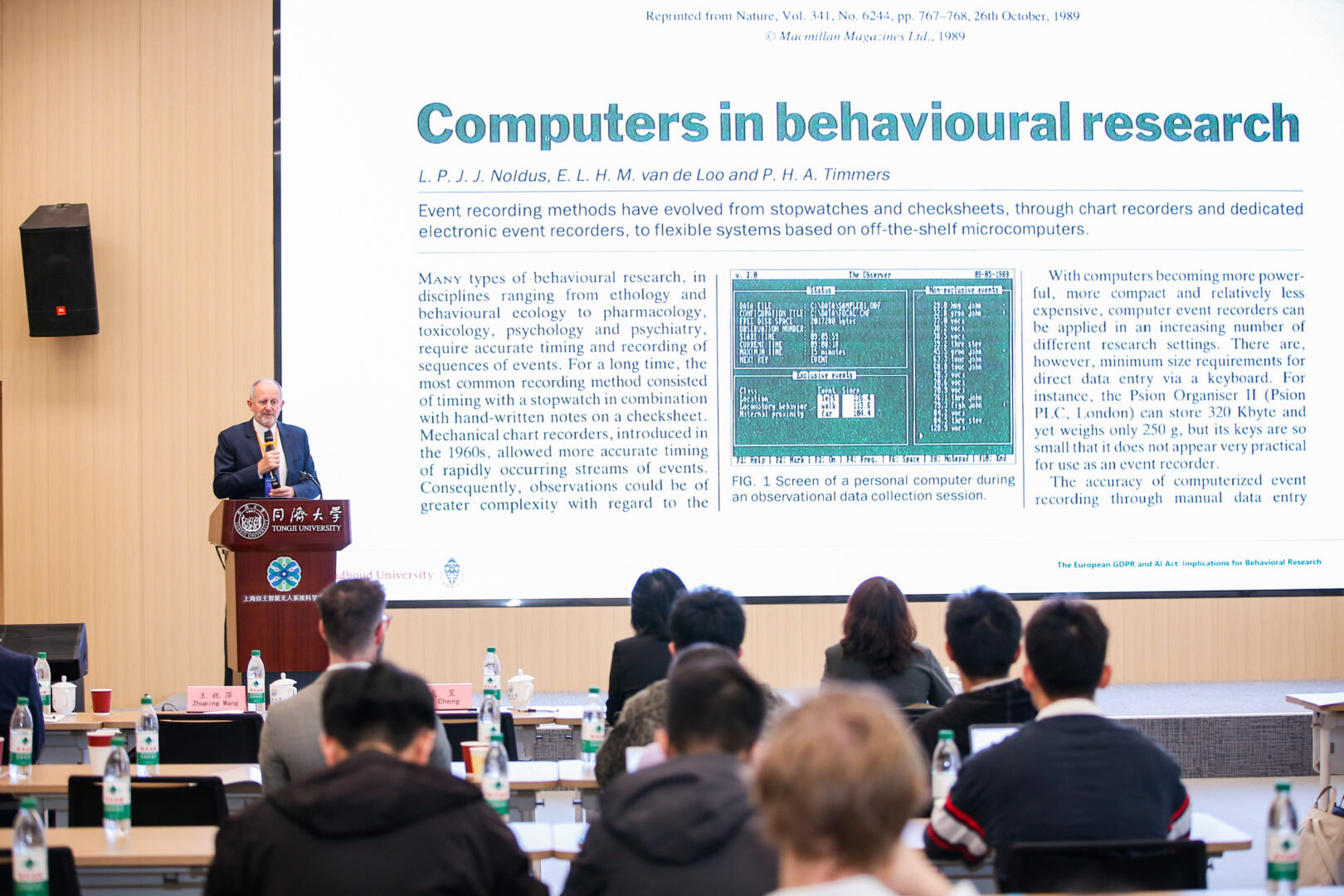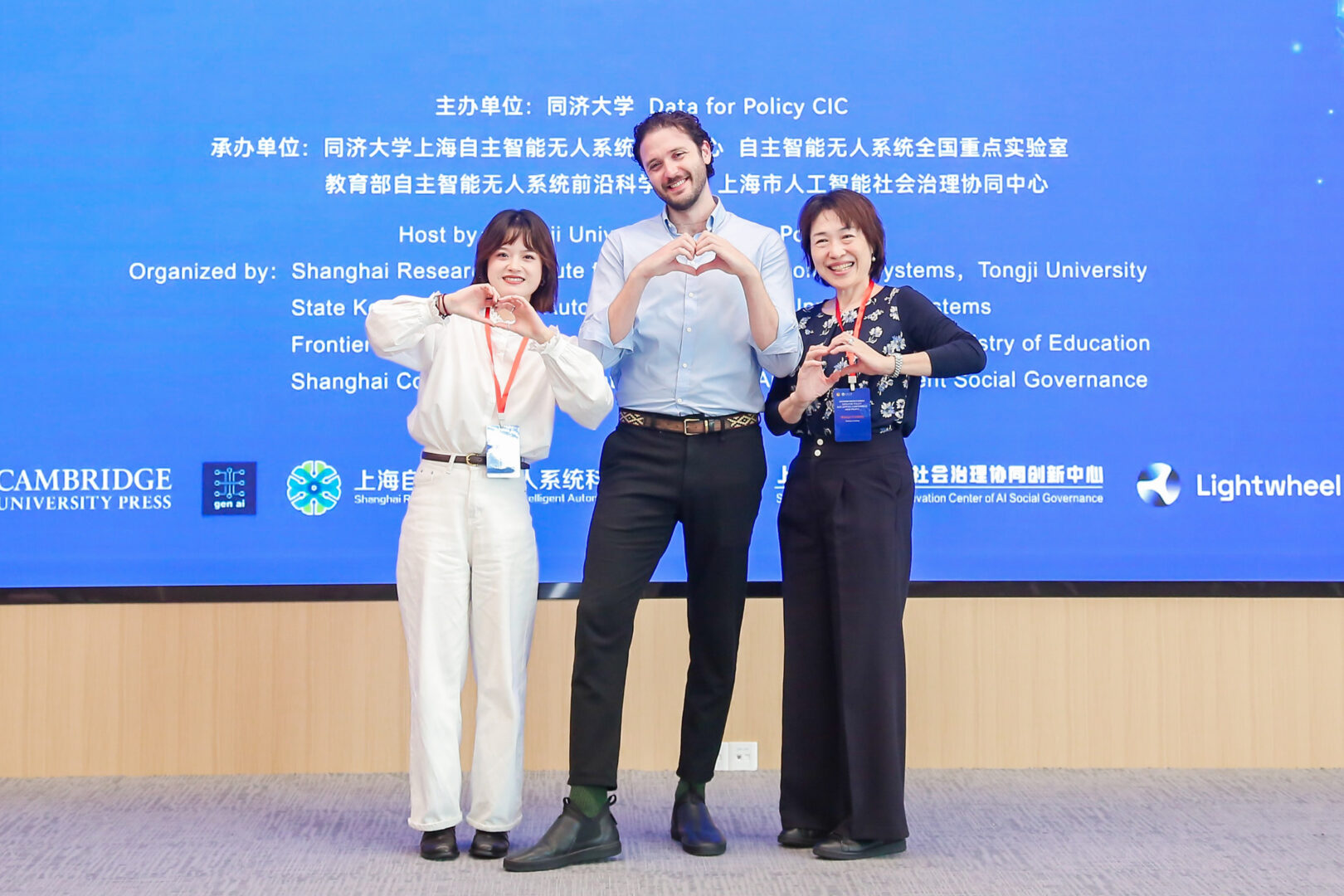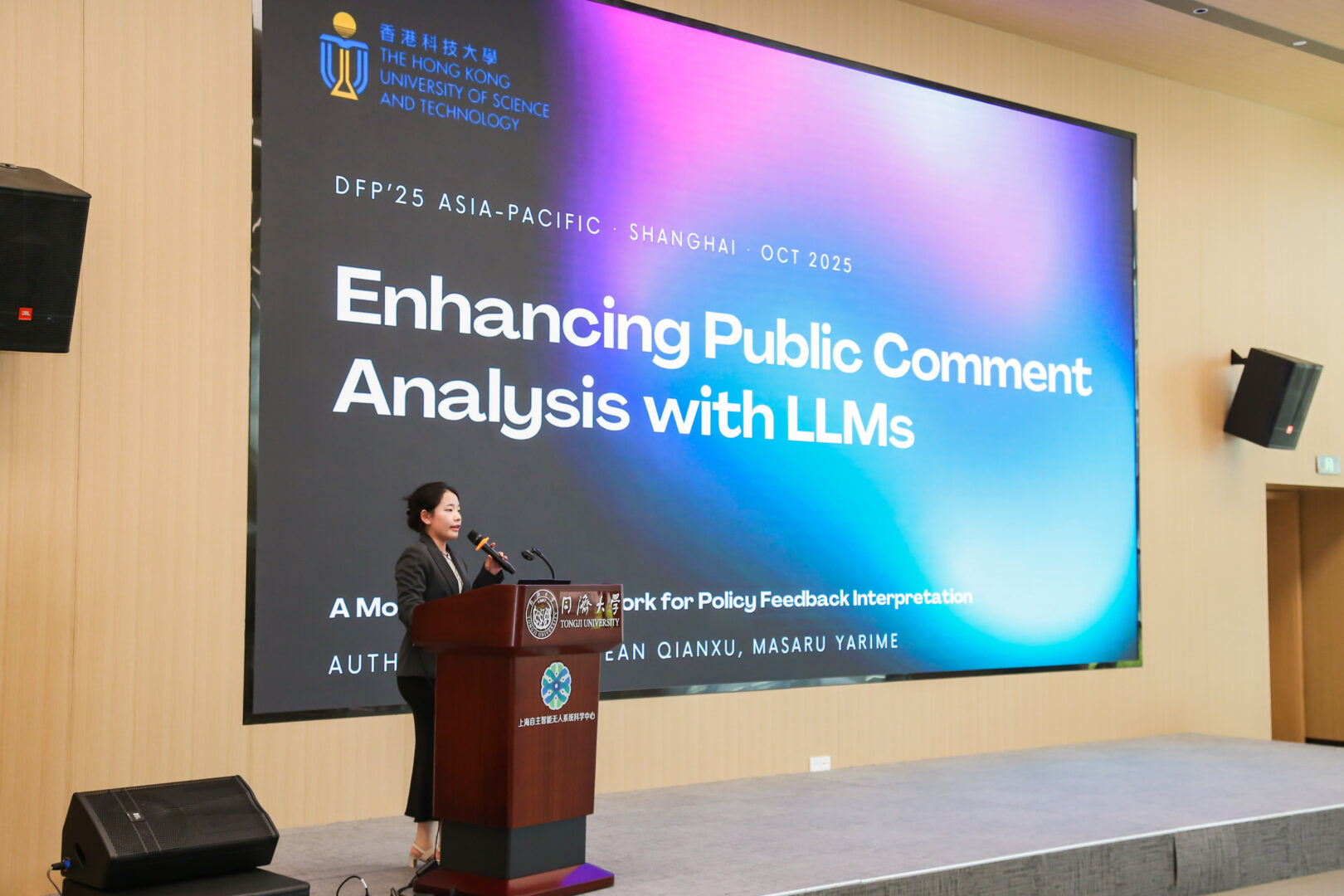
Data for Policy 2025 (DfP’25) Asia-Pacific:
Advancing AI: Innovations, Governance, and Ethical Frontiers
Shanghai Research Institute for Intelligent Autonomous Systems, Tongji University, Shanghai, China | 23–24 October 2025
The Data for Policy 2025 – Asia-Pacific Conference was held on 23–24 October 2025 at Tongji University, Shanghai, hosted by the Shanghai Research Institute for Intelligent Autonomous Systems. Under the theme “Advancing AI: Innovations, Governance, and Ethical Frontiers,” this year’s regional edition brought together researchers, industry experts, and civil society leaders to explore how artificial intelligence is transforming governance, ethics, and society across the Asia-Pacific and beyond.
Amid rapid advances in AI and automation, the conference focused on the urgent challenges of aligning innovation with accountability, transparency, and human values. Participants discussed how emerging technologies from generative AI to autonomous systems, can be governed responsibly to ensure equitable and sustainable benefits.
With 42 presentations and around 100 participants from academia, government, and industry, it showcased groundbreaking contributions, including healthcare advances such as early Alzheimer’s detection via linguistic analysis and secure anonymisation of psychiatric audio, robust governance solutions like adaptable AI frameworks and accountability through data controls, and ethical insights addressing biases in AI models, job disruptions in automated industries, culturally tailored laws in Indonesia, and philosophical approaches to social equity. Practical tools, from AI-driven legal analysis to efficient policy data processing, fueled collaborative efforts toward fair, trustworthy, and regionally responsive AI development.
The conference featured a series of compelling keynote sessions that delved into the intricate interplay of AI, ethics, governance, and innovation. Talks explored themes such as justice and human dignity in the age of AI, embodied intelligence and reconfigurable robotics, explainable and trustworthy AI, ethical governance frameworks in China, and the regulatory balance between innovation and accountability in Europe. Other presentations highlighted advances in AI-driven healthcare sensing, the moral status of biomedical data, emergent ethics for intelligent systems, and new paradigms for governing federated learning. Together, these keynotes reflected the Asia-Pacific region’s growing leadership in shaping responsible and inclusive AI futures.
During a special session, Dr Zeynep Engin, Founder of Data for Policy and Conference General Chair, introduced The Digital Statecraft Academy as a global hub designed to train visionary public leaders in navigating the complexities of data, AI, and digital governance. This initiative, supported by world-leading institutions, equips leaders with essential tools, knowledge, and networks to foster ethical, strategic, and resilient governance in a rapidly evolving digital landscape.
The regional chairs at Tongji University emphasised how this year’s event deepened international collaboration and provided a platform for sharing diverse perspectives on AI policy, ethics, and innovation. The discussions reaffirmed Data for Policy’s mission to connect technical progress with public value, ensuring that AI serves society as a tool for empowerment rather than exclusion.
We extend our sincere appreciation to the Shanghai Research Institute for Intelligent Autonomous Systems, Tongji University, the Shanghai Collaborative Innovation Center of AI Social Governance, The AI Hub in Generative Models, Cambridge University Press, the Data & Policy journal, for their invaluable support in making this event possible.
The Conference Book of Abstracts for Data for Policy 2025 – Asia-Pacific is available on Zenodo, providing open access to all accepted contributions and presentations from the event.
Keynote Speakers
Discover thought leaders and innovators shaping the future of data, AI, and public policy, who will be speaking at Data for Policy 2025 Asia-Pacific.
Explore the Day 1 Line-up Explore the Day 2 Line-up
- Huiling Jiang, Dean of the Law School at Tongji University and Chair at the Shanghai Collaborative Innovation Center of AI Social Governance
- Jamie Paik, Founder and Director of the Reconfigurable Robotics Laboratory and Vice-Dean of the School of Engineering at EPFL
-
Lihua Xie, Director of Centre for Advanced Robotics Technology Innovation of Nanyang Technological University
-
Weiwen Duan, Executive Dean of the School of Philosophy, University of Chinese Academy of Social Sciences, Director of the Department of Philosophy of Science and Technology, Institute of Philosophy, Chinese Academy of Social Sciences
-
Jiang Liu, Professor of Faculty of Science and Engineering, Global Center for Science and Engineering, Waseda University
- David Barber, Director of the Centre for Artificial Intelligence, University College London and Director of the AI Hub in Generative Models, UK
- Ruipeng Lei, Professor of University of Electronic Science and Technology of China
- Lei Ma, Associate Professor of the University of Tokyo
- Lucas Noldus, Professor at Donders Institute for Brain, Cognition and Behavior, Radboud University, Nijmegen, The Netherlands
- Sumei Cheng , Deputy Director and Research Fellow at the Institute of Philosophy, Shanghai Academy of Social Sciences
- Jon Crowcroft, Marconi Professor of Communications Systems in the Computer Lab, at the University of Cambridge, and researcher-at-large at the Alan Turing Institute
